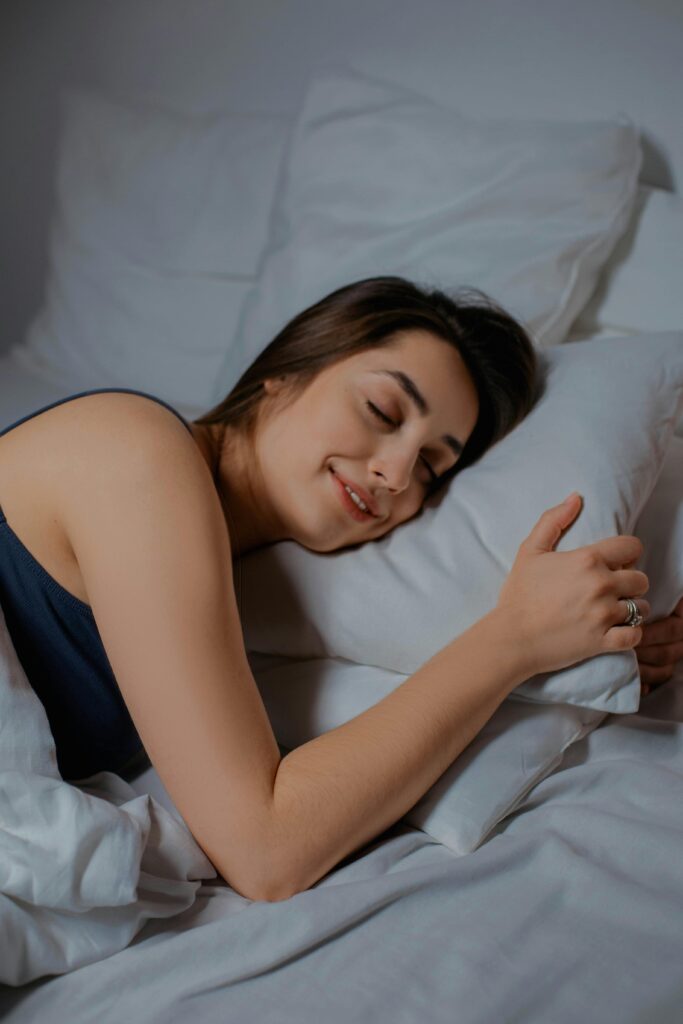Meta Description: Discover how to create a relaxing bedtime routine to reduce stress and improve sleep. Learn science-backed techniques for winding down effectively.
Introduction
Do you lie awake at night with racing thoughts? A structured bedtime routine can help calm your mind, relieve stress, and prepare your body for restful sleep. Studies show that consistent nighttime rituals lower cortisol levels and improve sleep quality by 30% or more.
In this guide, we’ll cover:
✔ The science behind bedtime routines and stress relief
✔ A step-by-step routine to follow
✔ Tips for making it stick

Why a Bedtime Routine Reduces Stress
Your body thrives on circadian rhythms—natural cycles that regulate sleep and wakefulness. A predictable nighttime routine:
✅ Signals your brain that it’s time to unwind
✅ Lowers cortisol (the stress hormone)
✅ Boosts melatonin (the sleep hormone)
✅ Reduces anxiety and overthinking
Without a routine, your mind stays in “active mode,” making it harder to fall asleep.

The Ideal 60-Minute Bedtime Routine for Stress Relief
1. Set a Consistent Bedtime (T-60 minutes)
- Aim for the same sleep schedule every night (even weekends).
- Example: If you wake at 6 AM, bedtime should be 10-11 PM.
2. Digital Detox (T-45 minutes)
- Turn off phones, TVs, and laptops—blue light disrupts melatonin.
- Try reading a book or journaling instead.
3. Relax Your Body (T-30 minutes)
- Gentle stretches or yoga (child’s pose, legs-up-the-wall).
- Progressive muscle relaxation (tense & release each muscle group).
4. Calm Your Mind (T-15 minutes)
- Meditation or deep breathing (try 4-7-8 breathing).
- Gratitude journaling (write 3 positive things from your day).
5. Create a Sleep-Inducing Environment (T-5 minutes)
- Dim lights to signal melatonin production.
- Use aromatherapy (lavender or chamomile essential oils).
- Keep room cool (60-67°F is ideal for sleep).

Science-Backed Techniques to Include
1. The 4-7-8 Breathing Method
- Inhale for 4 seconds
- Hold for 7 seconds
- Exhale for 8 seconds
- Repeat 4 times to activate relaxation.
2. Warm Bath or Shower
- A 10-minute warm bath (with Epsom salts) lowers core body temperature, aiding sleep.
3. Herbal Tea for Relaxation
- Chamomile, valerian root, or passionflower tea reduce anxiety naturally.

Common Mistakes to Avoid
❌ Checking emails/social media in bed → Triggers stress responses.
❌ Eating heavy meals late → Disrupts digestion and sleep.
❌ Drinking caffeine after 2 PM → Stays in your system for 6+ hours.
❌ Napping too late → Confuses your internal clock.
How Long Until You See Results?
- First night: May feel more relaxed.
- 1 week: Easier to fall asleep.
- 3-4 weeks: Noticeably lower stress and better sleep quality.
Consistency is key—stick with it for at least 21 days to form a habit.
Frequently Asked Questions (FAQ)
1. What if I can’t fall asleep after my routine?
- Get up and do a quiet activity (like reading) until sleepy.
2. Can I adjust the routine for shift workers?
- Yes! Follow the same steps before your sleep period, even if it’s daytime.
3. How short can a bedtime routine be?
- Even 20-30 minutes helps if done consistently.
4. Does music help?
- Soft, slow-tempo music (50-60 BPM) can enhance relaxation.
Final Thoughts
A bedtime routine isn’t just for kids—adults need it too, especially in high-stress lives. By dedicating just one hour to winding down properly, you can:
✔ Reduce nighttime anxiety
✔ Fall asleep faster
✔ Wake up refreshed
Start tonight—your future well-rested self will thank you!
Sources:
- Sleep Foundation – Bedtime Routines for Adults
- Harvard Health – Relaxation Techniques for Stress
- American Psychological Association – Stress and Sleep
By committing to a calming pre-sleep ritual, you can break the cycle of stress and sleeplessness for good.
